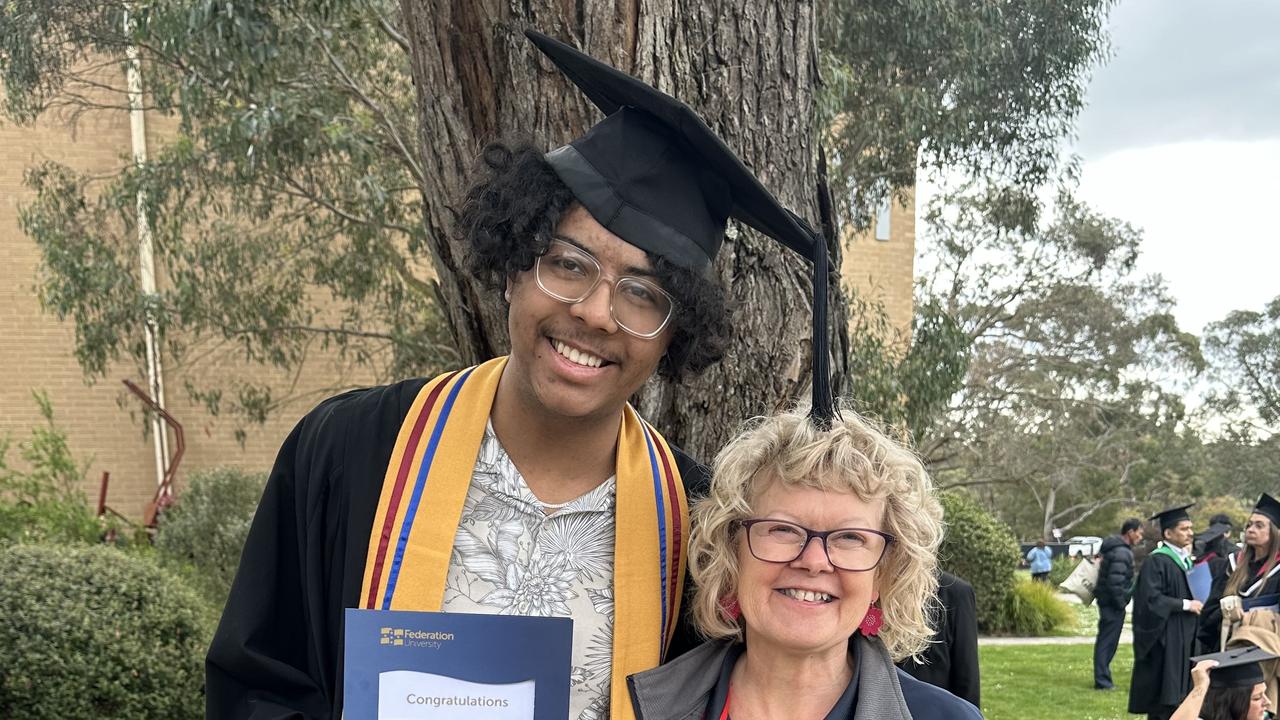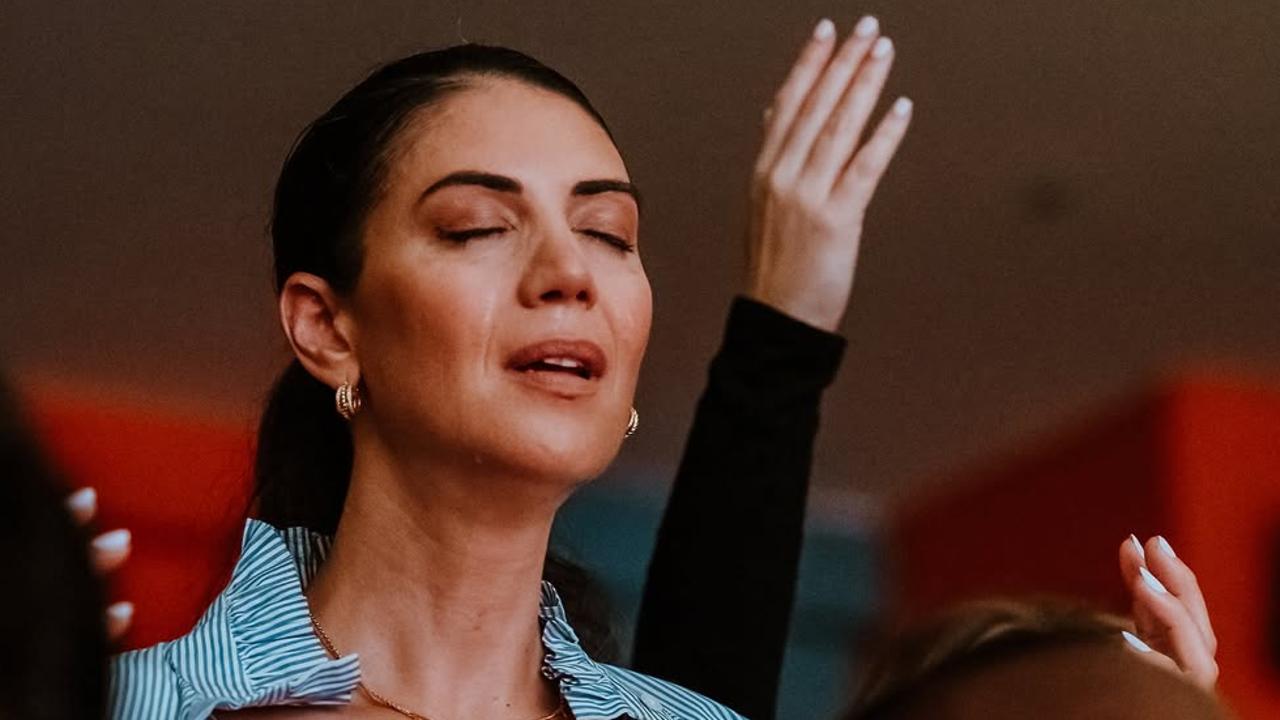Emma Booth aims for third Paralympics, 10 years after car accident
A decade after barely surviving a car accident that left her in a wheelchair, Emma Booth has a third Paralympic Games in her sights.
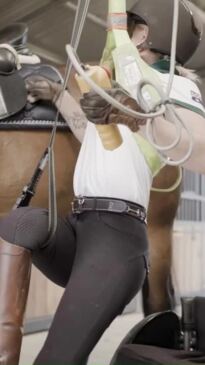
VWeekend
Don't miss out on the headlines from VWeekend. Followed categories will be added to My News.
The most significant ride of para-equestrian Emma Booth’s life was on a horse named Rocky.
This seems fitting because much like Sylvester Stallone’s fictional boxer, the odds were stacked against Booth.
Six months earlier, at age 21, she had been lucky to survive a “completely devastating” car accident on Victoria’s Melba Highway that left her paralysed from the waist down.
She had been confined to her hospital bed or wheelchair for months as she recovered from fractures that spread from her skull to her ankle. And she was coming to terms with life in a wheelchair, a “really difficult transition”.
But getting back on a horse at the Balmoral Equestrian Centre in Melbourne’s southeast – riding Rocky – gave Booth the confidence to launch an inspirational sporting story that arguably eclipses Rocky Balboa’s.
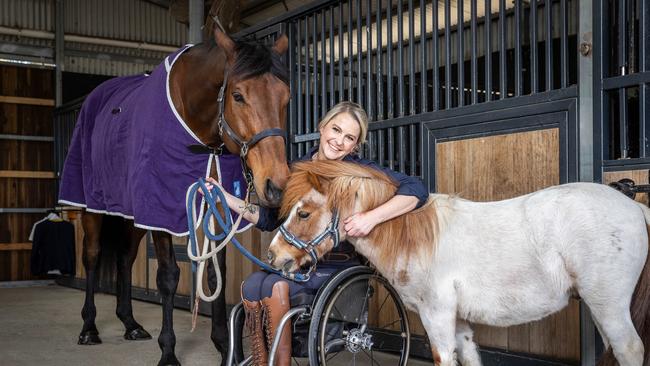
“Riding played a huge role in my physical and mental rehabilitation,” the now-32-year-old says. “It’s what I loved doing prior to my accident, it was my passion.
“So being able to do that again gave my new life as a paraplegic in a wheelchair a new sense of purpose and meaning.
“Being back in the saddle was a really comforting feeling, a really uplifting feeling. It was a real turning point in where I could see my life going after such a tragic incident.”
Three years after the accident, Booth qualified for the 2016 Rio Paralympics. She went on to achieve top-five finishes in dressage events there, at the 2018 World Equestrian Games in the US and the 2020 Tokyo Paralympics.
These results have fuelled Booth’s fire to not only qualify for her third Paralympics in Paris next year, but to bring home a medal.
“I’ve come fourth and fifth so many times,” she says. “I’m always knocking on the door.”
The Langwarrin South-based athlete has also become a champion for retired racehorses in her role as a Victoria Racing Club ambassador, which she’s held since the 2020 Melbourne Cup Carnival.


Booth has loved horses for as long as she can remember. But her family “weren’t horsey”. Her parents didn’t ride. So as an 11-year-old, she entered a competition run by popular TV show The Saddle Club to win a pony named Scruffy and riding lessons for a year, and won.
“It was literally one of those 1800 free calls,” she recalls. “You called up, left your name, number and information and went in the draw.
“(Winning) was a game changer in my life. My parents figured out very quickly it wasn’t just a phase and (my equine obsession) was going to stick.”
Booth fell hard for Scruffy, to the point where she bought him back years after having to return him. She also devoted herself to the sport of eventing.
She competed all through high school – on retired racehorse MP Griffin, who was given a second career via Racing Victoria’s Off The Track program – and in 2011, accepted a job in Germany riding and training horses for international dressage rider Holger Schulze. She looks back on this as “an amazing experience that taught me so much about my riding”.
Then in 2013, Booth and a friend were driving home from an event in Albury when a truck jackknifed coming around a corner, colliding with their car and another. A woman in the other car died and Booth was severely injured.
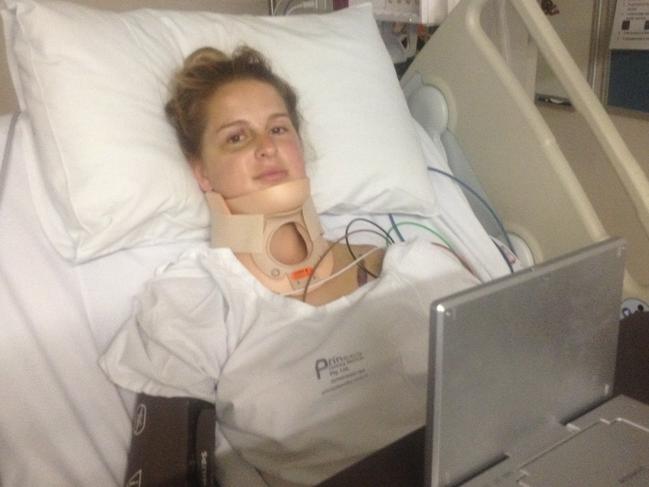

“I feel extremely lucky to have survived,” she says. “The extent of the injuries that I sustained was horrific. (I had) a fracture to the base of my skull, a bleed on the brain, a fractured collarbone, sternum and ankle, a punctured lung, significant abdominal injuries that required lifesaving surgery. There are a number of pins and plates in various places in my body.
“But the most significant and long lasting was the damage to my spine and spinal cord, which left me a paraplegic.”
Booth was in hospital for five months. Her young age and fitness ensured her recovery was faster than it could have otherwise been. Coming to terms with what happened was a slower process, but one that was aided by supportive friends and family, and her mindset.
“I focused as best I could on the positives and all the things I could still do,” she says. “That was pretty pivotal in my ability to cope with what had happened.”
Also critical to her mental recovery was the fact she was back riding within six months.
Booth would have preferred to be in the saddle sooner – “my spinal surgeon told me at my three-month scan that I was still not allowed to ride, otherwise I would have probably given it a crack then” – but it was better later than never.
Booth recalls feeling “extremely comfortable and natural” on horseback almost immediately, despite having to adapt to riding without full use of her legs.
“Early on, there were a few rides that were quite frustrating,” she says. “Leg aids are a huge part of communicating with the horse in able-bodied dressage. So I had to learn new and different ways, including training them to my voice commands. I can ride with two whips and they also become a compensating aid for the lack of my legs.
“I have velcro straps over my thighs, my feet are strapped into the stirrups so they don’t fall out and then my stirrups are tied to the girth so my legs don’t flap around. And I have a bar at the front of my saddle to hold on to if I lose balance.”
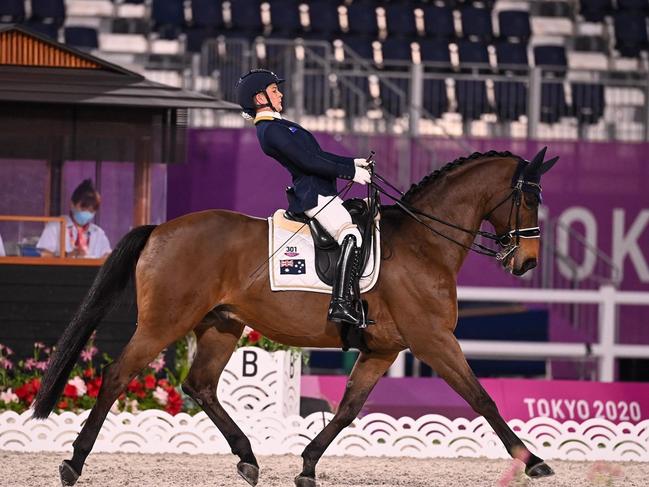
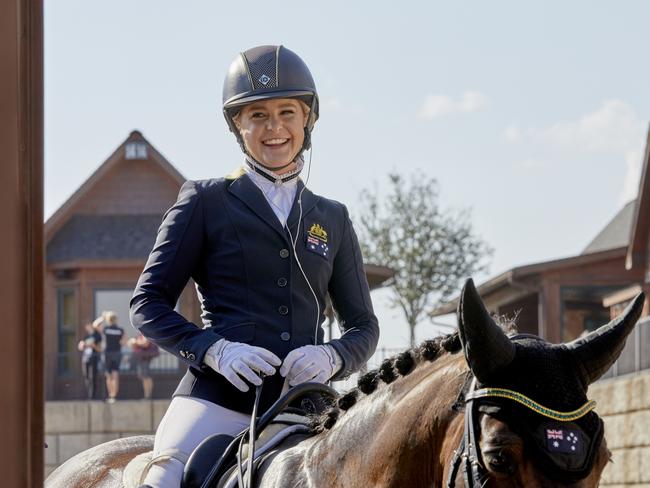
Booth describes herself as “an extremely proud Paralympian”. Her first Games were “an emotional rollercoaster (filled with) excitement and pride … knowing all the work you’ve put in (to) represent your country” has come to a head.
She and her beloved horse, Mogelvangs Zidane, made history at her second Games, in Tokyo, as the first horse and rider combination to represent Australia at two Paralympics.
Zidane died suddenly last year, devastating Booth and forcing her to find a new partner for the World Championships in Denmark a few months later.
The 2024 Paralympic Games in Paris are now in her sights. While lower-back issues are preventing her from riding at the moment, Booth vows she will be “back in the saddle in a couple of months, ready to hopefully smash out some great scores” to qualify for the Australian team. If she achieves this, her next goal will be a podium finish: “Coming home with a medal would be the ultimate outcome.”
Booth says the Tokyo Paralympics “set a new standard” for para sporting events in several ways. The media coverage was “so incredible (and) it’s so important this continues to be matched, or even elevated”, she says. The same goes for Paralympic medallists in Tokyo being awarded cash bonuses equal to their Olympic counterparts, including $20,000 for gold.
“That was a huge shift in para sport,” she says. “It realistically should have happened sooner (and) it took a bit of a push. But it’s extremely important it did happen.”
A significant push came from Chloe Dalton – an able-bodied Olympic gold medallist turned GWS Giants AFLW player and founder of The Female Athlete Project, a platform dedicated to boosting visibility and equality for women’s sport.
Shocked to learn Paralympic medallists weren’t guaranteed the same bonuses as Olympic medallists due to a disparity in funding for the sporting bodies, Dalton launched a GoFundMe campaign to fund them. Soon after, then-prime minister Scott Morrison committed to providing financial support to achieve this.
“Often in para sports, financial assistance is the thing that can be a limiting factor,” she says.


Booth says she would never have been able to compete at the Rio Games without family friend Glenn Carter raising more than $100,000 by riding his bike around Australia in 2015, so she could buy a quality horse.
“Without him, and the support of everyone who donated and got behind his journey to support me, I wouldn’t have been able to achieve what I have,” she says.
Booth also uses her platform to advocate for athletes of a different kind: retired racehorses. This drove her to become a Victoria Racing Club ambassador in 2020.
“I’m really passionate about making sure racehorses find the correct homes post-career,” she says, commending Racing Victoria’s Off The Track (OTT) program’s dedication to this cause.
“OTT thoroughbreds (are) extremely trainable, they’re willing and they’re athletic.”
OTT horse Big Ben – whose racing name was Pakaya Prince – is part of her current stable in Langwarrin South. “He’s been such a joy to work with and retrain,” she says.
Booth will be trackside at the Melbourne Cup on November 7, but says her experience watching last year’s race will be tough to top.
“We were really close to the finish line,” she says. “That race was amazing.
“I have a huge amount of respect for (winning trainer) Ciaron Maher, so seeing him come home with the Cup through Gold Trip was a highlight.”


